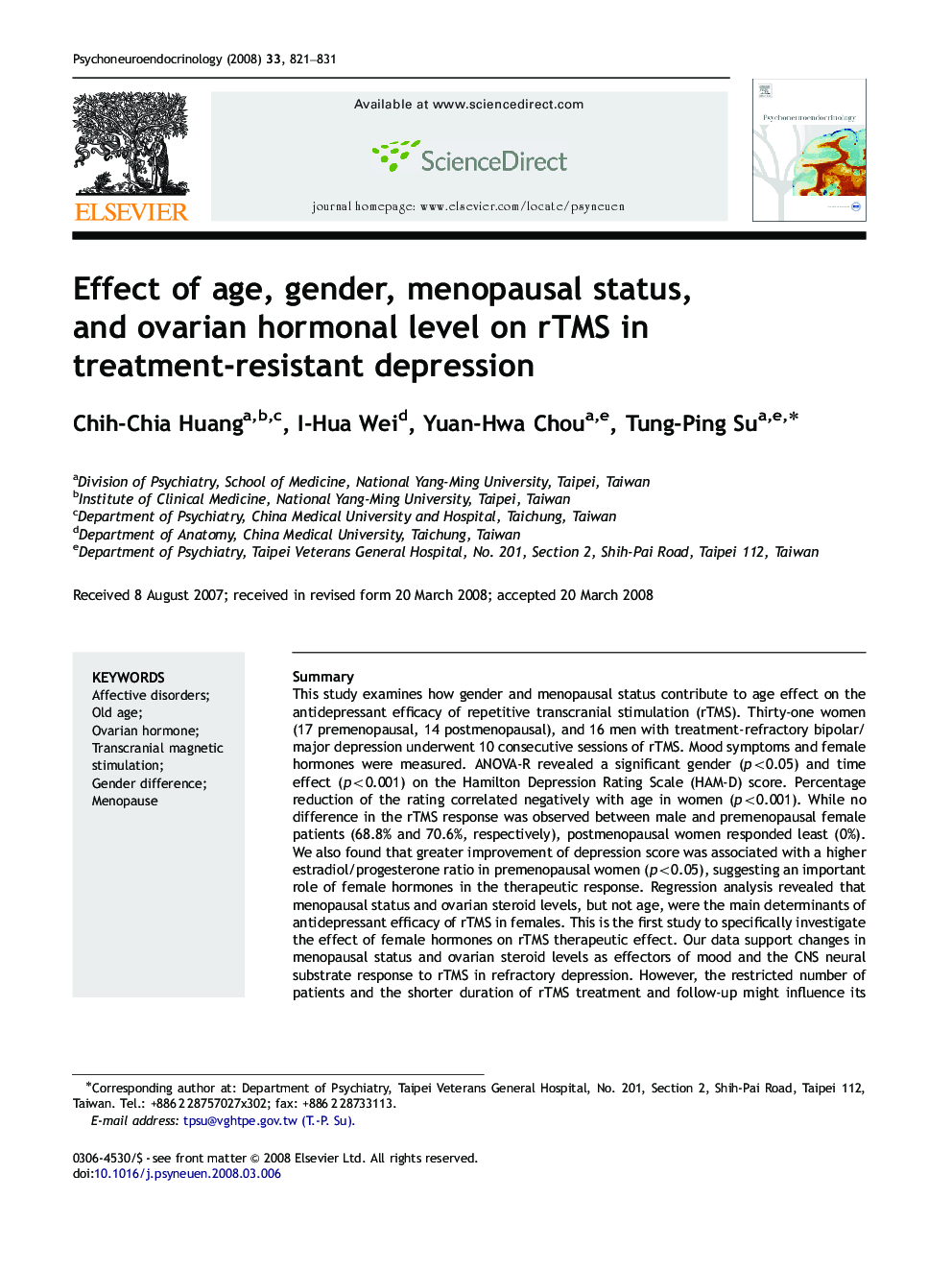| Article ID | Journal | Published Year | Pages | File Type |
|---|---|---|---|---|
| 336794 | Psychoneuroendocrinology | 2008 | 11 Pages |
SummaryThis study examines how gender and menopausal status contribute to age effect on the antidepressant efficacy of repetitive transcranial stimulation (rTMS). Thirty-one women (17 premenopausal, 14 postmenopausal), and 16 men with treatment-refractory bipolar/major depression underwent 10 consecutive sessions of rTMS. Mood symptoms and female hormones were measured. ANOVA-R revealed a significant gender (p<0.05) and time effect (p<0.001) on the Hamilton Depression Rating Scale (HAM-D) score. Percentage reduction of the rating correlated negatively with age in women (p<0.001). While no difference in the rTMS response was observed between male and premenopausal female patients (68.8% and 70.6%, respectively), postmenopausal women responded least (0%). We also found that greater improvement of depression score was associated with a higher estradiol/progesterone ratio in premenopausal women (p<0.05), suggesting an important role of female hormones in the therapeutic response. Regression analysis revealed that menopausal status and ovarian steroid levels, but not age, were the main determinants of antidepressant efficacy of rTMS in females. This is the first study to specifically investigate the effect of female hormones on rTMS therapeutic effect. Our data support changes in menopausal status and ovarian steroid levels as effectors of mood and the CNS neural substrate response to rTMS in refractory depression. However, the restricted number of patients and the shorter duration of rTMS treatment and follow-up might influence its generalization. Further study examining the interactions between mood, ovarian hormones, and rTMS treatment is warranted.
